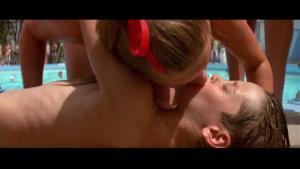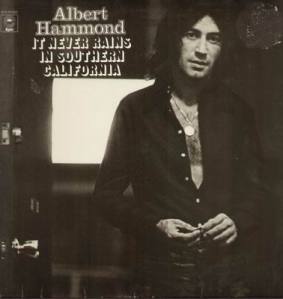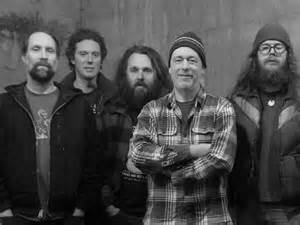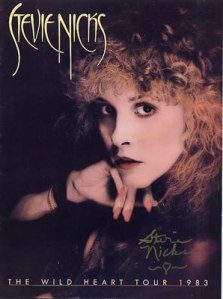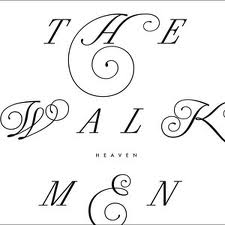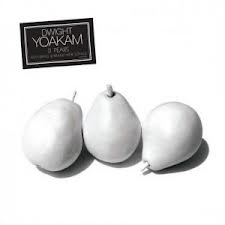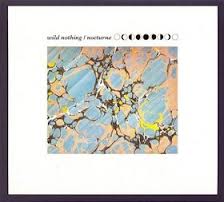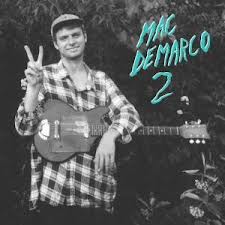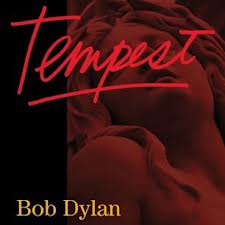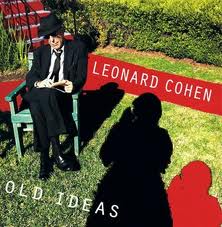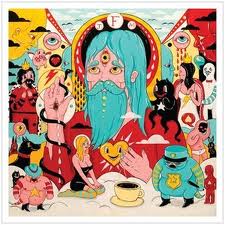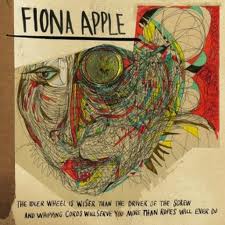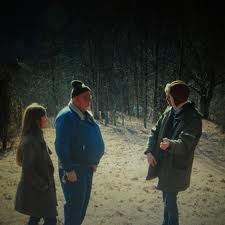I release my Top 10 Albums list a little later than most. I need time to decompress, to reflect, to compare. I don’t finish a good book and immediately sour its sweet final sentences by delving into chapter one of a new volume. I close the book, place it on my chest and exhale, letting the breath of the characters mingle with my own world. So, too, do I set aside 2013’s music until it coalesces into a readable fashion, a hierarchy of personal taste that’s recordable. Like I said, comparison is the name of the game…and procrastination. I’d like to justify my belief in the former and protract the latter, by offering this brief aside before the envelopes are opened.
List-makers like me are often criticized for making art academic. Outside of my Make Every Song life, I have made, and still do make art academic. In fact, I spent six years at college practicing it. So that’s why I say, take your complaints elsewhere! But allow me to complain about lists anyway. We live in a world in which a bunch of websites I don’t look at publish 324 posts a day titled things like: “37 Reasons You Might Be Obsessed With Hot Sauce”; “The 23 Best Crime-Fighting Animals”; “19 Things You Shouldn’t Do on the 19th Date”; “84 Ways to not Watch the Super Bowl.” Editorial note: a numerical list becomes unnecessary when the list contains everything you can think of in that category; the number attached to the list is not only rendered meaningless, but the list itself is annoying and pseudo-academic as well. However, a finite list can reveal nuances in my musical taste. Of course, I know I like things without comparing them to other things, but I may not know how much. My apartment burning down will usually be the worst part of my day, but not always, just as The National’s new album will only sometimes be the best album I hear in a year. I like it, and the things around it, to different degrees. This is my comparison. In this comparison, #1 is better than #2. Call me a doomsday prep-er, but I’m ready for my desert island.
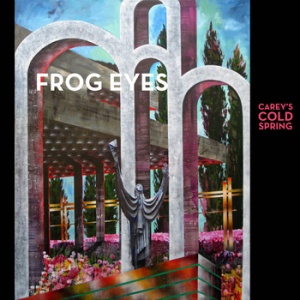 10) Frog Eyes – Carey’s Cold Spring: I’m surely one of the few close followers of Frog Eyes and, having self-appointed myself that distinguished title, I’ll declare that Carey’s Cold Spring is maybe, perhaps, almost their best album. That’s strange to say because it’s their least, well, strange. There’s something openly optimistic about this record, something more major key than usual, and it’s manifested noticeably in song constructions that are closer to standard ones—and I love standard song constructions. In the end, Carey’s Cold Spring is full of engaging songs sung as passionately as ever by Carey Mercer. Listen and you will be pleasantly, fully engaged for nine great songs. Number 10 is their spot on this list.
10) Frog Eyes – Carey’s Cold Spring: I’m surely one of the few close followers of Frog Eyes and, having self-appointed myself that distinguished title, I’ll declare that Carey’s Cold Spring is maybe, perhaps, almost their best album. That’s strange to say because it’s their least, well, strange. There’s something openly optimistic about this record, something more major key than usual, and it’s manifested noticeably in song constructions that are closer to standard ones—and I love standard song constructions. In the end, Carey’s Cold Spring is full of engaging songs sung as passionately as ever by Carey Mercer. Listen and you will be pleasantly, fully engaged for nine great songs. Number 10 is their spot on this list.
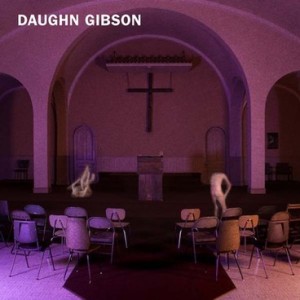 9) Daughn Gibson – Me Moan: In my own conservative way, I usually try to give points for originality, and Me Moan gets a lot of them. On the other hand, I’m usually not a fan of very affected singing styles, but Daughn Gibson makes it fun, like his name. I’m not sure the instruments that make them, but this album has a lot of weird hooks that endear me to the songs, not the least of which is that computer-bagpipe thing on “Mad Ocean.” Perhaps most impressive is that this album, for as strange as it is, maintains a comfortable pace that makes the unusually crafted pop songs believable. “Kissing on the Blacktop” is the highlight.
9) Daughn Gibson – Me Moan: In my own conservative way, I usually try to give points for originality, and Me Moan gets a lot of them. On the other hand, I’m usually not a fan of very affected singing styles, but Daughn Gibson makes it fun, like his name. I’m not sure the instruments that make them, but this album has a lot of weird hooks that endear me to the songs, not the least of which is that computer-bagpipe thing on “Mad Ocean.” Perhaps most impressive is that this album, for as strange as it is, maintains a comfortable pace that makes the unusually crafted pop songs believable. “Kissing on the Blacktop” is the highlight.
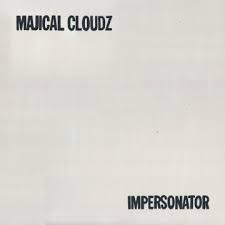 8) Majical Cloudz – Impersonator: Last year, I had Dirty Projectors’ Swing Lo Magellan as my favorite album. For the same reasons, I have Impersonator on this list. I like its blend of non-standard instrumentation/production with classically affecting vocal melodies. I was tempted to include Spencer Krug’s Julia with Blue Jeans On in my ten albums, but I couldn’t because it was just him and a piano. Majical Cloudz keep me both sonically interested and also emotionally engaged. “Bugs Don’t Buzz” does it best, if understatedly. Devon Welsh also has maybe the truest voice I listened to this year. It flairs up only when it has to and his normal low register captures the subtle terror of moving through a day—a terror he clearly feels given the album’s title and content.
8) Majical Cloudz – Impersonator: Last year, I had Dirty Projectors’ Swing Lo Magellan as my favorite album. For the same reasons, I have Impersonator on this list. I like its blend of non-standard instrumentation/production with classically affecting vocal melodies. I was tempted to include Spencer Krug’s Julia with Blue Jeans On in my ten albums, but I couldn’t because it was just him and a piano. Majical Cloudz keep me both sonically interested and also emotionally engaged. “Bugs Don’t Buzz” does it best, if understatedly. Devon Welsh also has maybe the truest voice I listened to this year. It flairs up only when it has to and his normal low register captures the subtle terror of moving through a day—a terror he clearly feels given the album’s title and content.
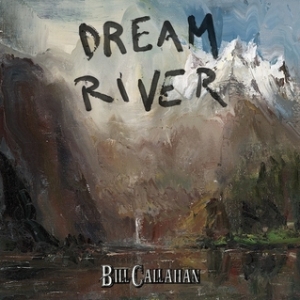 7) Bill Callahan – Dream River: This one was mired in my “maybe” pile for a long time, and I swear it’s not just because of the mantra, “Beer…Thank you,” that I came around to this album. Bill Callahan may seem lazy or scattered, especially on Dream River, but now that it’s finally sunk in, I’m certain that I’m hearing the creation of a very particular mind, placing sounds and images as carefully as it experienced the actual events that inspired them. “Summer Painter” captures the youthful American experience better than anything else this year. How can any of us ever know, having painted boats or not, who we work for, “The rich or the poor?”
7) Bill Callahan – Dream River: This one was mired in my “maybe” pile for a long time, and I swear it’s not just because of the mantra, “Beer…Thank you,” that I came around to this album. Bill Callahan may seem lazy or scattered, especially on Dream River, but now that it’s finally sunk in, I’m certain that I’m hearing the creation of a very particular mind, placing sounds and images as carefully as it experienced the actual events that inspired them. “Summer Painter” captures the youthful American experience better than anything else this year. How can any of us ever know, having painted boats or not, who we work for, “The rich or the poor?”
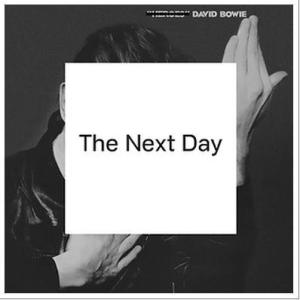 6) David Bowie – The Next Day: We haven’t heard from this old-timer for a while and when he sings “Where are we now?” he may have answered the question: the royal “we” is in a pretty good place. Society, the Earth, musical taste at large, maybe not so much, but David Bowie is sitting pretty. Almost every song and lyric seems autobiographical here—a legend coming off of a hiatus, talking about it and it being good. More than anything, The Next Day definitely retains Bowie’s fun of old, as “Dancing Out in Space” attests. He clearly doesn’t give up on certain themes.
6) David Bowie – The Next Day: We haven’t heard from this old-timer for a while and when he sings “Where are we now?” he may have answered the question: the royal “we” is in a pretty good place. Society, the Earth, musical taste at large, maybe not so much, but David Bowie is sitting pretty. Almost every song and lyric seems autobiographical here—a legend coming off of a hiatus, talking about it and it being good. More than anything, The Next Day definitely retains Bowie’s fun of old, as “Dancing Out in Space” attests. He clearly doesn’t give up on certain themes.
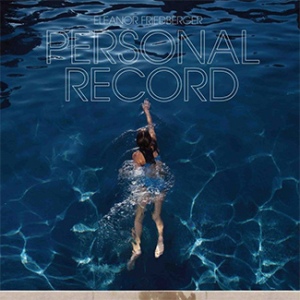 5) Eleanor Friedberger – Personal Record: As its title suggests, this is a very honest album and, like a friend divulging something awkward in the back seat of a late night cab, it’s funny in its truthfulness. Musically, it’s very Friedberger—very Fiery Furnaces, except that the majority of the pretentious bubbliness has been left behind. It’s more straight pop with an unusual singing cadence. Confessional albums can sometimes only reach so far, but a song like “Echo or Encore” absolutely gives itself to the larger world. It becomes the listener’s song: it will echo in your head and you’ll want more, surely the same effect the object of the singer’s affection has on her.
5) Eleanor Friedberger – Personal Record: As its title suggests, this is a very honest album and, like a friend divulging something awkward in the back seat of a late night cab, it’s funny in its truthfulness. Musically, it’s very Friedberger—very Fiery Furnaces, except that the majority of the pretentious bubbliness has been left behind. It’s more straight pop with an unusual singing cadence. Confessional albums can sometimes only reach so far, but a song like “Echo or Encore” absolutely gives itself to the larger world. It becomes the listener’s song: it will echo in your head and you’ll want more, surely the same effect the object of the singer’s affection has on her.
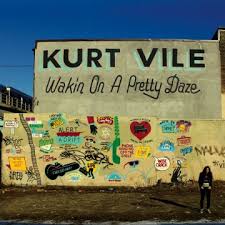 4) Kurt Vile – Wakin on a Pretty Daze: I was a little anxious thinking about writing this short review, but then I realized it was written for me: Wakin on a Pretty Daze. As infuriating as the lack of an apostrophe in the title irks me, the album, and the sentiment behind it, is inherently un-irking. It’s hard for me to single out songs to talk about, or describe anything but the constantly churning rhythm of the album. Kurt Vile has a sound and the sound is good. It’s relaxing and intricate and those two things don’t often go together. But for my top album of the year, I probably put this one on the most, because, why not?
4) Kurt Vile – Wakin on a Pretty Daze: I was a little anxious thinking about writing this short review, but then I realized it was written for me: Wakin on a Pretty Daze. As infuriating as the lack of an apostrophe in the title irks me, the album, and the sentiment behind it, is inherently un-irking. It’s hard for me to single out songs to talk about, or describe anything but the constantly churning rhythm of the album. Kurt Vile has a sound and the sound is good. It’s relaxing and intricate and those two things don’t often go together. But for my top album of the year, I probably put this one on the most, because, why not?
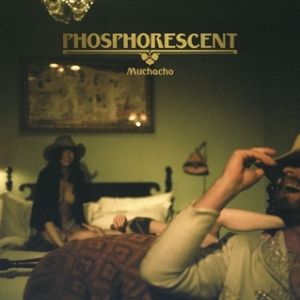 3) Phosphorescent – Muchacho: Maybe I’m jaded by my own love of the slow, serious stuff, but I’m trying to go with fun this year. This album has a mix of the two, but a drag it is certainly not. Phopspherescent write good songs to travel to and Phosphorescent is sixty or so damn good miles. “Song for Zula” is confounding in that it’s in between an anthem and a ballad, missing the forceful chorus of the former and the latter’s would-be depressing feel is killed by the uplifting and omnipresent wall of strings and keys. I was going to post a particular lyric from it, but it would be a disservice to the song to chop it up; it’s good poetry—all truth and failure and the rest. The entire album follows suit.
3) Phosphorescent – Muchacho: Maybe I’m jaded by my own love of the slow, serious stuff, but I’m trying to go with fun this year. This album has a mix of the two, but a drag it is certainly not. Phopspherescent write good songs to travel to and Phosphorescent is sixty or so damn good miles. “Song for Zula” is confounding in that it’s in between an anthem and a ballad, missing the forceful chorus of the former and the latter’s would-be depressing feel is killed by the uplifting and omnipresent wall of strings and keys. I was going to post a particular lyric from it, but it would be a disservice to the song to chop it up; it’s good poetry—all truth and failure and the rest. The entire album follows suit.
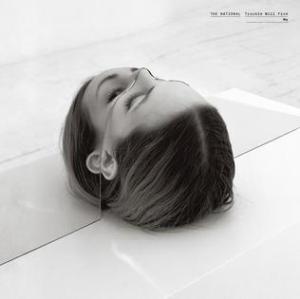 2) The National – Trouble Will Find Me: Oh, what is there to say? Maybe what my friend did recently—that The National are the best active American rock band. While their sound, especially on Trouble, may not exude “rock,” they display the rock characteristics of great guitar work and catchy melodies. And lyrically they’re not to be beaten on my particular list. It’s not a sexy pick, it’s just a good and true one. I can play this album on repeat and not only is it great every time, I discover something new as well. Side note: the end of “Heavenfaced”—U2 anyone?
2) The National – Trouble Will Find Me: Oh, what is there to say? Maybe what my friend did recently—that The National are the best active American rock band. While their sound, especially on Trouble, may not exude “rock,” they display the rock characteristics of great guitar work and catchy melodies. And lyrically they’re not to be beaten on my particular list. It’s not a sexy pick, it’s just a good and true one. I can play this album on repeat and not only is it great every time, I discover something new as well. Side note: the end of “Heavenfaced”—U2 anyone?
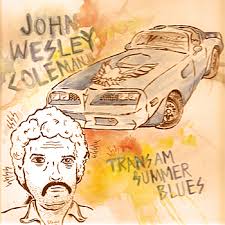 1) John Wesley Coleman – Trans Am Summer Blues: This is the album I played the most this year—it was a go-to and, in the unlimited universe of streaming music, it’s hard to argue with such a practical, gravitational attraction. It’s hard for me to say that it’s a unique album, a trait I’ve already claimed to try to honor, given its derivative, laid-back, rock ’n’ roll musicality. But it is unique in the offhanded emotion it exudes. When I listen to TASB, I feel like, and it feels like, one of the cool kids; it’s an entity that can make fun of what it’s doing, while doing it the best and trying the least. It may sound like music from a garage in the 80s, though I’d like to see the best balladeers of that era match “Million Faces.” Maybe I’m just smitten with the hilarious appeals to Eleanor Friedberger for a gig—John Wesley Coleman also dabbles in standup comedy, among other pursuits—but he passed her on my list this year. Not taking anything too seriously still has its merits.
1) John Wesley Coleman – Trans Am Summer Blues: This is the album I played the most this year—it was a go-to and, in the unlimited universe of streaming music, it’s hard to argue with such a practical, gravitational attraction. It’s hard for me to say that it’s a unique album, a trait I’ve already claimed to try to honor, given its derivative, laid-back, rock ’n’ roll musicality. But it is unique in the offhanded emotion it exudes. When I listen to TASB, I feel like, and it feels like, one of the cool kids; it’s an entity that can make fun of what it’s doing, while doing it the best and trying the least. It may sound like music from a garage in the 80s, though I’d like to see the best balladeers of that era match “Million Faces.” Maybe I’m just smitten with the hilarious appeals to Eleanor Friedberger for a gig—John Wesley Coleman also dabbles in standup comedy, among other pursuits—but he passed her on my list this year. Not taking anything too seriously still has its merits.

